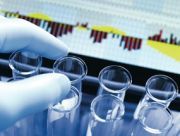Article
Experimental Human Antibody Treatment Produces Significant Symptom Improvements in Patients with Plaque Psoriasis
Author(s):
Study results show that patients with moderate to severe chronic plaque psoriasis experienced significant symptom improvement after a single treatment with an experimental human antibody.

In study results published in the Journal of Allergy and Clinical Immunology, researchers reported that patients with moderate to severe chronic plaque psoriasis experienced significant symptom improvement after a single treatment with an experimental human antibody.
According to a news release that accompanied publication of the study results, the experimental treatment blocks an immune signaling protein crucial to the development of plaque psoriasis. Previously, researchers had suspected interleukin-23 played an important role in plaque psoriasis. Now, this research has shown that interleukin-23, a type of immune signaling molecule known as a cytokine, “kicks off a cascade of interactions that leads to inflammation in the skin and excessive growth of skin cells and dilation of blood vessels.”
Study author James Krueger, director of the Milstein Medical Research Program, D. Martin Carter Professor in Clinical Investigation and head of the Laboratory of Investigative Dermatology at Rockefeller University, said “The striking result we achieved using a human antibody that targets the signal interleukin-23 suggests we are on the threshold of doing something very different from our current model of treating psoriasis with immunosuppressive drugs throughout an adult lifetime. It raises the possibility of working toward long-term remission — in other words, a cure.”
For this study, researchers used an experimental compound known as BI 655066, which is a human antibody that targets interleukin-23 and blocks it from binding to the receptors on cells that respond to it.
The researchers said that a majority of the 31 patients in the study with plaque psoriasis who received treatment with BI 655066 experienced “rapid, substantial, and durable clinical improvement” after a single treatment. Most patients who received the treatment “had a more than 80 percent improvement in the severity and extent of their skin lesions that continued until tracking ended six weeks after treatment.”
Genetic sequencing of skin samples taken from patients “revealed that the antibody’s action reduced the expression of many of the cytokines and other molecules that define psoriasis.”




